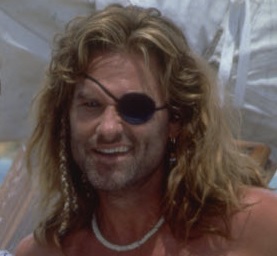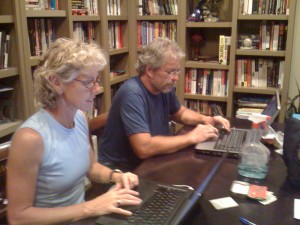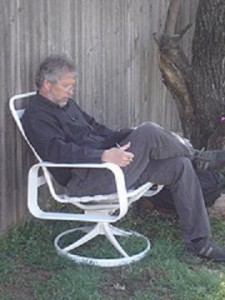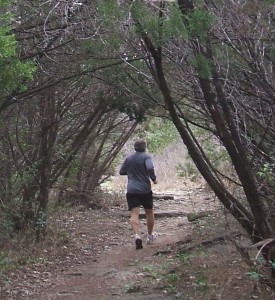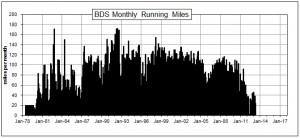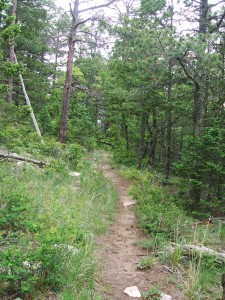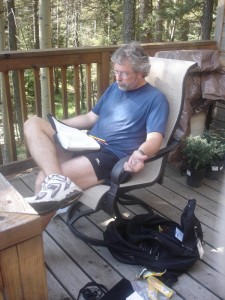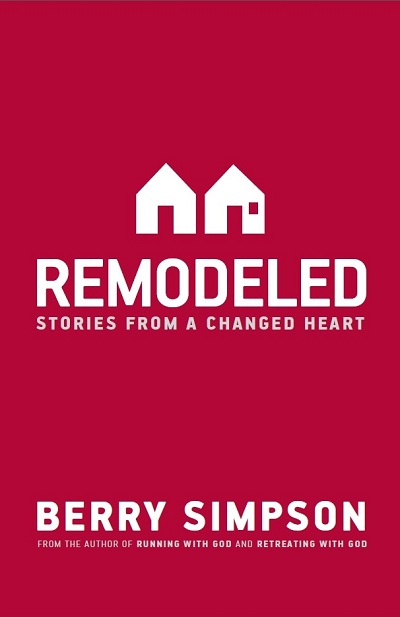I have been working through the movie, A Good Year, preparing to use it to teach a short lesson at an upcoming men’s weekend at Bear Trap Ranch, Colorado.
In the movie, Russell Crowe played Max Skinner, an edgy bond trader that got rich taking huge risks with other people’s money. As a result of one of his successful but quasi-legal gambles, Max was suspended for a week. He spent his time at a French vineyard that he’d inherited but wanted to sell.
One day, while taking photos for his realtor, Max fell into an empty swimming pool and couldn’t get out. Not only that, he lost his phone so he couldn’t call for help. At the bottom of the pool he was invisible to 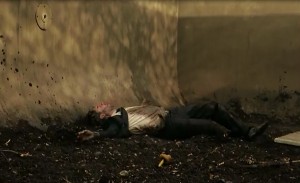 passers-by, so his only recourse was to wait for someone to come along and rescue him.
passers-by, so his only recourse was to wait for someone to come along and rescue him.
This was a significant turning point in the movie; it was when Max started rethinking his life. Disconnected from the outside world, feeling helpless, he began to reevaluate his success.
Has this happened to you? Have you ever found yourself disconnected, slowed down, forced to wait for rescue, and left to assess your life? What were your own personal pool moments? How did they change you? Did you take advantage of them?
Maybe you’re in the pool right now.
I recently told one of my own pivotal pool moments while teaching Sunday School. Our class has been going through the Gospel of John, and for some reason, totally unplanned on my part, my lessons have been even more personal than usual.
OK, the truth is, I don’t know how to teach the Bible without making it personal. And by that, I mean that I include lots of personal stories. The more years I teach – I first started teaching small groups in college, about 1977, but this particular phase of teaching adults began in 1990 – the more I lean on stories to make a point instead of theology or linguistics.
I’m not sure why I’ve drifted so much toward storytelling, but it makes me happy.
So the lesson from John 4 was about a government official who asked, begged, Jesus to heal his son. And Jesus healed him.
I told a story of a time when I begged Jesus for help, when my son, Byron, was hit by a reckless, speeding driver while riding his bike. It was a Saturday afternoon in September, on Caldera street, Byron was six years old, I was about ten feet behind him riding my own bike, with 3-year-old daughter, Katie, in a bike seat behind me, when it happened.
It was terrifying, and I was powerless to help.
The white Camaro spun around in the road and its rear fender hit Bryon on the left side of his head. Byron spent the weekend in the hospital with a concussion and a giant black eye, worrying about whether he would get a new bike. He loved riding that bike and since he didn’t remember the accident, he was afraid he did something wrong and might not get bicycle.
That afternoon, at the scene of the accident, and later at the hospital, was the first time in my life I prayed to God when I had something to lose. I was begging Jesus for healing.
I’ve believed in Jesus my entire life, I’ve prayed as long as I’ve been lingual, and I believed in the power of prayer, but up until that moment my praying had been mostly about obedience and discipline. On that day, my praying was about fear and helplessness. I was afraid I would lose my little boy.
I should add that Byron is fine nowadays, and has no lasting injuries, or even memories, from that day. But that afternoon changed me.
For the first time, as a husband and father, I had to admit that I could not protect my family on my own. Even if I coached them on safety and even if we did all the right things, some crazy person could still take them away from me. It was a hard blow.
But I became a better dad because of it. Before the accident I was so full of myself and too smart. The accident and the weekend in the hospital disconnected me from all my usual resources and I had to reevaluate my understanding of what it meant to be a good dad.
Looking back, I’ve realized I needed that shock to make room for later growth.
Well, after I told that story on Sunday morning I was surprised how many wanted to tell me their similar stories. It turns out we all had much more in common with the desperate government official from John 4 than we knew.
And so I’ll repeat my questions. What were your pool moments? When were you forced to slow down and reevaluate? How did it change you? Did you take advantage of it? Are you in the pool right now?
“I run in the path of Your commands, for You have set my heart free.” Psalm 119:32
Find me at http://berrysimpson.com and learn more about my books. Or find me at http://twitter.com/berrysimpson and at http://www.facebook.com/BerrySimpsonAuthor







